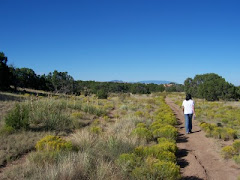
Here is a good site to begin studying the Great War's influence on contemporary literature.
This evening we watched on PBS the wrenching account of Rudyard and Carrie Kipling's devastation at the loss of their son John in the Battle of Loos, September 1915.
My Boy Jack
'Have you news of my boy Jack?'
Not this tide.
'When d'you think that he'll come back?'
Not with this wind blowing, and this tide.
'Has any one else had word of him?'
Not this tide.
For what is sunk will hardly swim,
Not with this wind blowing, and this tide.
'Oh, dear, what comfort can I find?'
None this tide,
Nor any tide,
Except he did not shame his kind--
Not even with that wind blowing, and that tide.
Then hold your head up all the more,
This tide,
And every tide;
Because he was the son you bore,
And gave to that wind blowing and that tide!

















